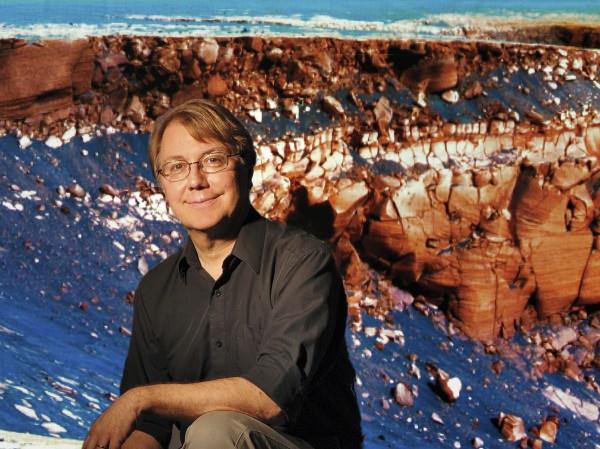by Keith Hautala
(Feb. 10, 2014) — A Harvard professor will deliver a special lecture at the University of Kentucky about the earliest forms of life on Earth.
"The Deep History of Life: What Kinds of Life Characterized Earth During the Precambrian?" will be presented by Andrew H. Knoll, of the Harvard University Departments of Organismic and Evolutionary Biology and Earth and Planetary Sciences. Knoll's talk is free and open to the public and will take place starting at 7 p.m. Thursday, Feb. 13, at Memorial Hall. Free parking will be available at Parking Structure No. 2, on Hilltop Avenue.
 The Precambrian period refers to the time when only primitive life forms existed on Earth, before about 545 million years ago.
The Precambrian period refers to the time when only primitive life forms existed on Earth, before about 545 million years ago.
"Fossils of shells, bones, tracks, and trails record a history of animal evolution more than 600 million years in duration," Knoll said, in an abstract for his talk. "Earth, however, is some 4.5 billion years old, prompting the question of what kinds of life characterized our planet’s youth and middle age."
Knoll will discuss what he calls the "three major chapters" of Earth’s history, including the first 2 billion years, when our planet was a very different world from the modern Earth, with microorganisms that neither generated nor consumed oxygen.
The talk is sponsored by Kentucky Section of the American Institute of Professional Geologists, the Kentucky Geological Survey, the UK Department of Earth and Environmental Sciences, and other academic and geologic groups. The event is part of the Darwin Lecture Series, begun in 2009 to bring national speakers in geosciences to Kentucky.
Information about the event, including a campus map of the lecture and parking locations, is available for download in PDF format from http://ky.aipg.org/PDF/Knoll.pdf. For additional information, please contact Richard Smath of the Kentucky Geological Survey at rsmath@uky.edu, or 859-320-0503.
